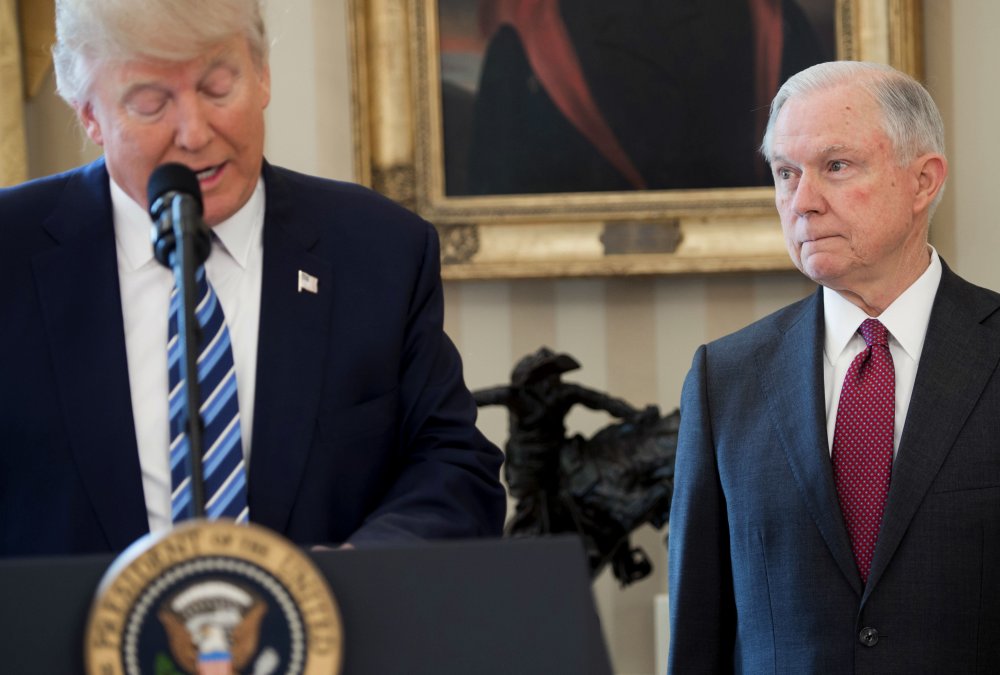Rep. Chris Collins (R-N.Y.) was the first Republican member of Congress to endorse Donald Trump’s presidential candidacy in 2016. Rep. Duncan Hunter (R-Calif.) was the second. Last month, both were indicted by federal prosecutors in unrelated cases.
Yesterday, the Republican president made clear he isn’t happy about it.
“Two long running, Obama era, investigations of two very popular Republican Congressmen were brought to a well publicized charge, just ahead of the Mid-Terms, by the Jeff Sessions Justice Department,” Trump tweeted.
He added, “Two easy wins now in doubt because there is not enough time,” before delivering what appeared to be a sarcastic compliment to his top law enforcement official.
“Good job Jeff,” Trump wrote.
After more than a year and a half in the White House, Donald Trump genuinely seems to believe that the federal justice system should shield the president’s political allies — not only because of their partisan allegiances, but also because, in Trump’s mind, the attorney general should weigh electoral considerations before allowing criminal suspects to be charged.
Sally Yates, who served as acting attorney general before Trump fired her last year for giving the White House good advice, described the president’s rhetoric as “nothing short of an all out assault on the rule of law,” and I’m hard pressed to imagine how any fair minded observer would disagree.
Indeed, I’m not sure which is the bigger problem: the fact that the sitting president of the United States has basically endorsed the political corruption of federal prosecutions or the fact that he just doesn’t care about the implications of such brazen abuses.
In 2006, the Bush/Cheney White House orchestrated a purge of several U.S. attorneys when the federal prosecutors resisted pressure to pursue politically motivated cases. This became the basis for a major scandal, but at the time, the scheme was hatched in secret — because the White House didn’t want the public to see them try to politicize prosecutorial decisions.
How quaint to be concerned about appearances.
Last year, Trump met with then-FBI Director James Comey and allegedly pressured him behind closed doors to go easy on a political ally, former White House National Security Advisor Michael Flynn, during a federal investigation. By most accounts, the incident is now being scrutinized by Special Counsel Robert Mueller as a possible example of obstruction of justice.
Yesterday, however, the president saw no need to hide behind closed doors: Trump was instead willing to suggest via Twitter that he wants federal law enforcement to go easy on his allies, in order to, among other things, improve their re-election chances.












